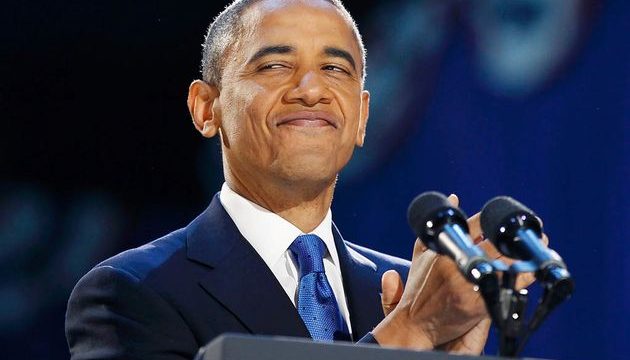Remember When Obama And Democrats Were For Constitutional Limits On War Powers?

I started this blog in 2003, at the height of the invasion of Iraq. My earliest years as a political observer were spent watching the political enemies of Republicans and President George W. Bush claim that he was a “war criminal” fighting an “illegal war.”
I’ll not re-litigate the case for invading Afghanistan and Iraq under Bush – I don’t think anybody’s mind will change on those matters at this point -the thing that always irritated me about the attacks on the legitimacy of the wars is that Bush specifically sought the authorization of Congress. And he received it. Congress approved authorization, with two separate pieces of legislation, for the war on al Qaeda and the war in Iraq. Whatever else can be said about those conflicts, Congress went along for the ride, and I always believed that if Congress rescinded those authorizations that the use of military force should halt.
Because that’s how the law works.
Still, the left – and many mainstream Democrats, including former U.S. Senator Barack Obama – have always held that “Bush’s wars” were illegitimate. These same people are largely silent now that Obama is president, and he sees little need for something as gauche as Congressional approval for the use of military force. Which is a point Jack Goldsmith, writing for Time makes today:
Future historians will ask why George W. Bush sought and received express congressional authorization for his wars (against al Qaeda and Iraq) and his successor did not. They will puzzle over how Barack Obama the prudent war-powers constitutionalist transformed into a matchless war-powers unilateralist. And they will wonder why he claimed to “welcome congressional support” for his new military initiative against the Islamic State but did not insist on it in order to ensure clear political and legal legitimacy for the tough battle that promised to consume his last two years in office and define his presidency.
“History has shown us time and again . . . that military action is most successful when it is authorized and supported by the Legislative branch,” candidate Barack Obama told the Boston Globe in 2007. “It is always preferable to have the informed consent of Congress prior to any military action.” President Obama has discarded these precepts. His announcement that he will expand the use of military force against the Islamic State without the need for new congressional consent marks his latest adventure in unilateralism and cements an astonishing legacy of expanding presidential war powers.
I can expand on that quote Goldsmith uses: “The president does not have power under the Constitution to unilaterally authorize a military attack in a situation that does not involve stopping an actual or imminent threat to the nation,” candidate Obama said in 2007. “It is always preferable to have the informed consent of Congress prior to any military action,” he continued.
Obama didn’t seek Congressional authorization for his use of force in Syria. He didn’t seek approval from Congress when he sent troops into Uganda. And he is not now seeking it for his use of force against ISIS.
The War Powers Resolution of 1973 allows the President to wage war for 60 days without the assent of Congress during “a national emergency created by attack upon the United States, its territories or possessions, or its armed forces.” As troubling as the rise of ISIS has been, does it present a national emergency to the United States? If not, then in order for the President to invoke his war powers he must get the approval of Congress.
That’s what the Constitution requires, though former Secretary of Defense Leon Panetta told Congress in 2011 that such approval was merely a formality these days.
What this proves is that in American politics, it seems the only people who are in favor of limits on the power of government as the people who aren’t currently wielding that power. In this instance, Democrats were outspoken proponents of constitutional limits on the executive branch’s war powers when we had a Republican executive, but they’re dismissive of those limits when we have a Democrat executive.
That hypocrisy – shared by both political parties – is at the center of what ails this country.




